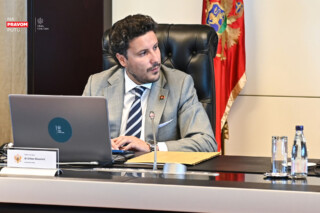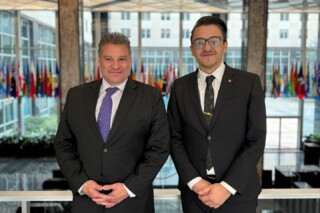Croatia, Romania, Bulgaria and Slovenia are just some of the EU member states having their reasons to be satisfied, given they can count on more than 120 billion euro for the next seven years from the EU budget. According to prime minister, Mr Andrej Plenković, whose govt managed to ensure 22 billion euro, this amount will be “a great stimulus for the implementation of reforms and economic recovery of Croatia”.
The meeting in Brussels, which started on Friday (17 July at 10 am), finished on Tuesday early in the morning, around 6 am, when the EU agreed on the 1.824 billion euro recovery package for the period 2021-2027.
And what about the Balkans? Montenegro?
When you compare 22 billion euro given only to Croatia with 3.3 billion earmarked for the region, it sounds pretty humble, wouldn’t you agree?
The question is whether Montenegro can use this amount to recover from the consequences of the coronavirus pandemic even partially, but there’s no doubt that the EU membership would greatly facilitate the whole problem.
The EU, on the other side, reiterates that the European Commission has so far earmarked 53 million euro bilateral assistance to MNE for urgent health needs and economic & social recovery.
“Montenegro also benefits from a €455 mil package to ensure short-term survival and a medium-term recovery in the private sector in the Western Balkans. In addition, the Commission has approved €60 mil in macro-financial assistance to Montenegro, while the European Investment Bank is providing a €1.7 billion aid package for the region,” the EU’s spokesperson, Ms Ana Pisonero, told Pobjeda daily.
According to the professor at the Montenegrin Faculty of Economy and ex-foreign affairs minister, Ms Gordana Đurović, the EU’s aid has showed us that they are thinking about the region and Montenegro as well. Moreover, everything points out to the fact that MNE should aspire to full EU membership, as our country would cope with the future health and economic challenges more readily.
When talking about high figures, Ms Đurović added, one might get confused especially when added up from different sources and for different period. That is how the statement of Croatia officials should be interpreted referring to a €22 billion aid for the next seven years through the instrument ‘EU of the future generation’.
“This is probably a correct calculation, at the level of one member state, using a complex budget methodology by budget lines. It is also 40% of Croatia’s estimated GDP for 2019. However, these are total amounts, not net amounts. And the “contribution” of the Republic of Croatia for the EU budget for the same period hasn’t been mentioned,” Ms Đurović explained.
When it comes to the Western Balkans, she says that assistance to the region in the current seven-year period is part of the budget chapter “EU as a global player”. That budget line makes up 6.1% of the total EU budget, for all global EU activities at the international stage. It provides pre-accession assistance IPA II at 1.1% of the total EU budget.




